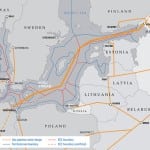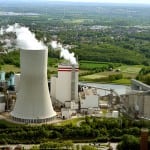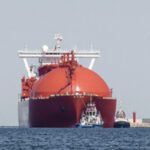Almost a week after Russia’s state-run gas export monopoly Gazprom cut nearly its entire capacity of natural gas exports to Europe over a pricing dispute with neighboring Ukraine, the countries hard hit by the halt in supply are looking for ways to wean themselves from Russian gas.
Several European countries endured a total natural gas shutoff from pipelines flowing from Russia through Ukraine, including Bulgaria, Germany, Greece, Hungary, Romania, and Slovakia. Others, like Austria, Italy, and France faced critical shortages at the peak of the winter heating season in a bitterly cold January.
The dispute between Ukraine and Gazprom erupted late last year when the Russian company demanded Ukraine pay up more than $2 billion owed for gas delivered from Gazprom to Naftogaz Ukrainy, the Ukrainian utility. The matter was compounded by Gazprom’s raising the price Ukraine pays for gas from $179.50/1,000 cubic meters to $450 and by its insistence on collecting what it says are fines. Ukraine, on the other hand, wants to raise tariffs for gas shipped across its territory.
Russia stopped supplying gas to Ukraine on Jan. 1 over the price dispute. On Jan. 7, having accused Ukraine of illegally siphoning gas destined for Europe, Gazprom also shut off all gas supplies being shipped through Ukraine to the continent.
That six-day disruption drew closer to resolution on Tuesday, when Gazprom declared force majeure on its exports to Europe. Hours afterward, however, Aleksandr Medvedev, Gazprom’s deputy chief executive, said an attempt to ship fuel to the Balkans through the Ukraine had not succeeded—that the Ukrainian side had blocked the export route by using the pipeline to meet domestic demand. “In this situation, Gazprom has no physical possibility to supply gas to European consumers,” he said.
This halt in gas supplies is not the first. In 2006, Russia turned off all gas exports to Ukraine for three days, causing volumes to fall in the EU. It also cut shipments by 50% last March during a debt spat.
Particularly hard hit was the power generation industry. Europe relies on Russia for 25% of its gas, most of which passes through Ukraine, according to Gazprom. Demand rose 23% in the past decade as power generators turned away from coal. According to the International Energy Agency (IEA), about a third of Europe’s 542 billion cubic meters per year of consumption is now used to produce power. Gas is also the fuel of choice for new power generation, and it is used to supply two-thirds of new capacity.
Analysts have speculated that Russia, under heavy domestic and budgetary pressure, is using the crisis to jack up natural gas prices.
In Bulgaria, a country that relies almost entirely (96% of demand) on Russian gas, tens of thousands of homes were left without heating. The country shut down breweries, chemical plants, and smelters. Romania and Serbia also shut down some of their industrial centers.
At the same time, according to Reuters, daily electricity consumption in Bulgaria surged to 7,000 MW. Though it has the capacity to produce another 1,100 MW from hydro and thermal power plants, and it exports about 632 MW (mainly to Greece and the western Balkans), last week President Georgi Parvanov said if the cut continues, the country would consider restarting a unit at Kozloduy nuclear power station, which it had shut down in 2006 per an EU accession treaty.
Slovakia, which depends on Russia for 98% of its natural gas imports declared a state of emergency on Jan. 6. The economy minister announced on Jan. 7 that the country was facing the danger of a blackout because transmission network–supporting generators are gas-dependant. On Jan. 10, the Slovak government, like Bulgaria, said it would reactivate the second Chernobyl-type nuclear reactor at the Bohunice plant, which it had shut down on Dec. 31. But the European Commission recently warned the country that reactivating the plant was “not an option” and that it ran counter to EU law.
Likewise, when gas exports to Germany—which relies on Russia to supply 40% of its gas (10% of which is used for power generation)—dwindled to a stop, analysts called for a reassessment of its nuclear phase-out.
Sources: Gazprom, Reuters, Standart (Bulgaria), Spectator (Slovakia), AFP, The Guardian










